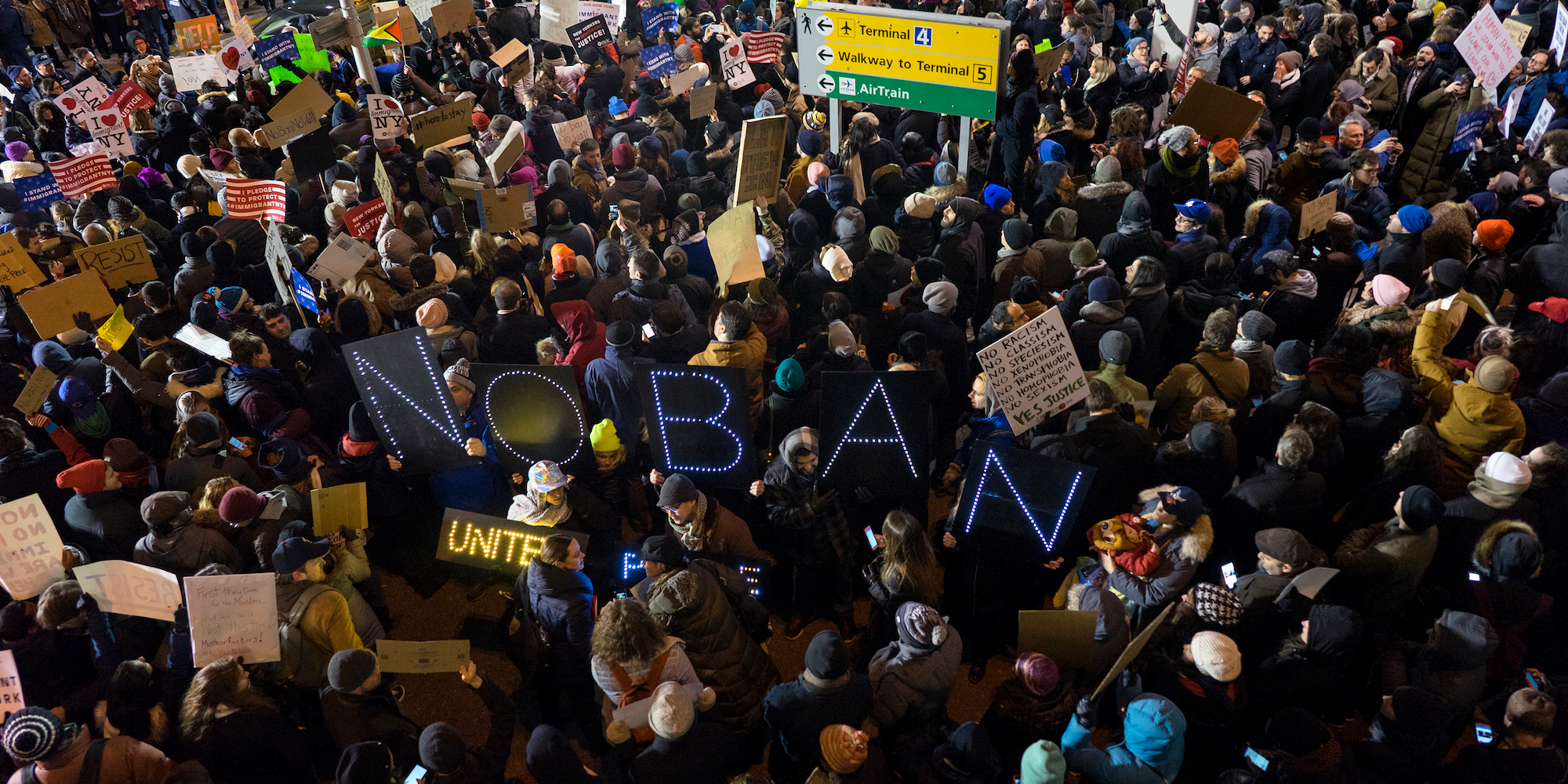- The Department of Homeland Security’s inspector general wrote a report criticizing the agency over its response to the first travel ban President Donald Trump issued in January.
- The department, according to its watchdog, violated two court orders during the ban’s implementation.
- In a letter to lawmakers, the inspector general said he was “very troubled” that the DHS has not released the report.
The Department of Homeland Security’s inspector general told members of Congress on Monday he was “troubled” that the agency has not yet released his report on the chaotic rollout of President Donald Trump’s original travel ban last January.
In the unreleased, 87-page report, Inspector General John Roth accused agency officials of violating two court orders that temporarily blocked parts of the ban from taking effect. The report also detailed the ban’s haphazard implementation, in which senior Customs and Border Protection managers appeared “caught by surprise,” according to a letter Roth sent to lawmakers Monday that was obtained by Politico.
The travel ban threw airports across the country into pandemonium almost immediately after Trump signed it on January 27. The order suspended all travel to the US by citizens of seven majority-Muslim countries, including people who held valid US visas, some of whom had already boarded flights to the US before the order was issued.
CBP officials detained those travelers for hours once they reached the US – in some cases more than a day – as lawyers worked to secure their release and massive protests erupted at the airports. Within 36 hours of the ban’s rollout, federal judges in New York, Virginia, Massachusetts, and Washington had issued emergency rulings staying various parts of the order.
The Trump administration, meanwhile, characterized the ban's rollout as a "massive success story in terms of implementation on every single level."
Roth's report, however, alleged that while CBP officials in the US generally complied with the court orders being issued, officials operating out of foreign airports violated those orders by prohibiting some travelers from boarding their US-bound flights.
Furthermore, Roth criticized the DHS's response to "basic questions as to the scope of the order", like whether the ban applied to lawful permanent residents with green cards. Roth noted that the issue was one that "should have been resolved early in the process."
Senators warn of 'repercussions' if the report is buried

In his letter to lawmakers, Roth expressed concerns about the DHS's reluctance to release the report, arguing that the agency has previously published dozens of reports that investigated department policies, decisions, and implementation.
Roth said DHS official told him that his report is being reviewed for any information that could be subject to attorney-client privilege or privilege protecting the department's "deliberative process."
"This is the first time in my tenure as Inspector General that the Department has indicated that they may assert this privilege in connection with one of our reports or considered preventing the release of a report on that basis," Roth wrote in the letter to Congress. "I am very troubled by this development."
DHS spokesman Tyler Houlton told Politico that agency officials "conducted themselves professionally, and in a legal manner" during the ban's implementation. He added that the material in Roth's report is covered by "privileges afforded by well-recognized law."
The two Democratic Senators from Illinois, Tammy Duckworth and Dick Durbin, said in a joint statement to Politico that "there will be repercussions in Congress" if the Trump administration fails to release the report.
"It is frankly unacceptable that the Trump Administration now appears to be hiding that information not just from Congress, but from the public as well," they said. "We know that CBP officers have a difficult job - but when the President failed to provide even the most basic guidance or warning regarding his discriminatory and unconstitutional Muslim Ban, he clearly didn't make it any easier."
Since the original travel ban, Trump has released two other iterations of the order, both of which have faced heavy litigation. The most recent version was signed in September and has been partially implemented after a federal appeals court ruling.
The Trump administration has asked the Supreme Court to allow the full ban, which imposed travel restrictions on eight countries, to take effect. The government has argued that the newest ban differs from previous versions "both in process and in substance."

